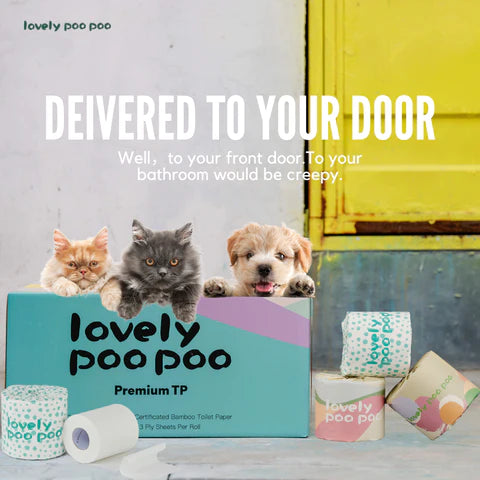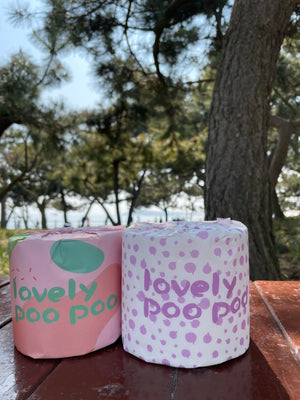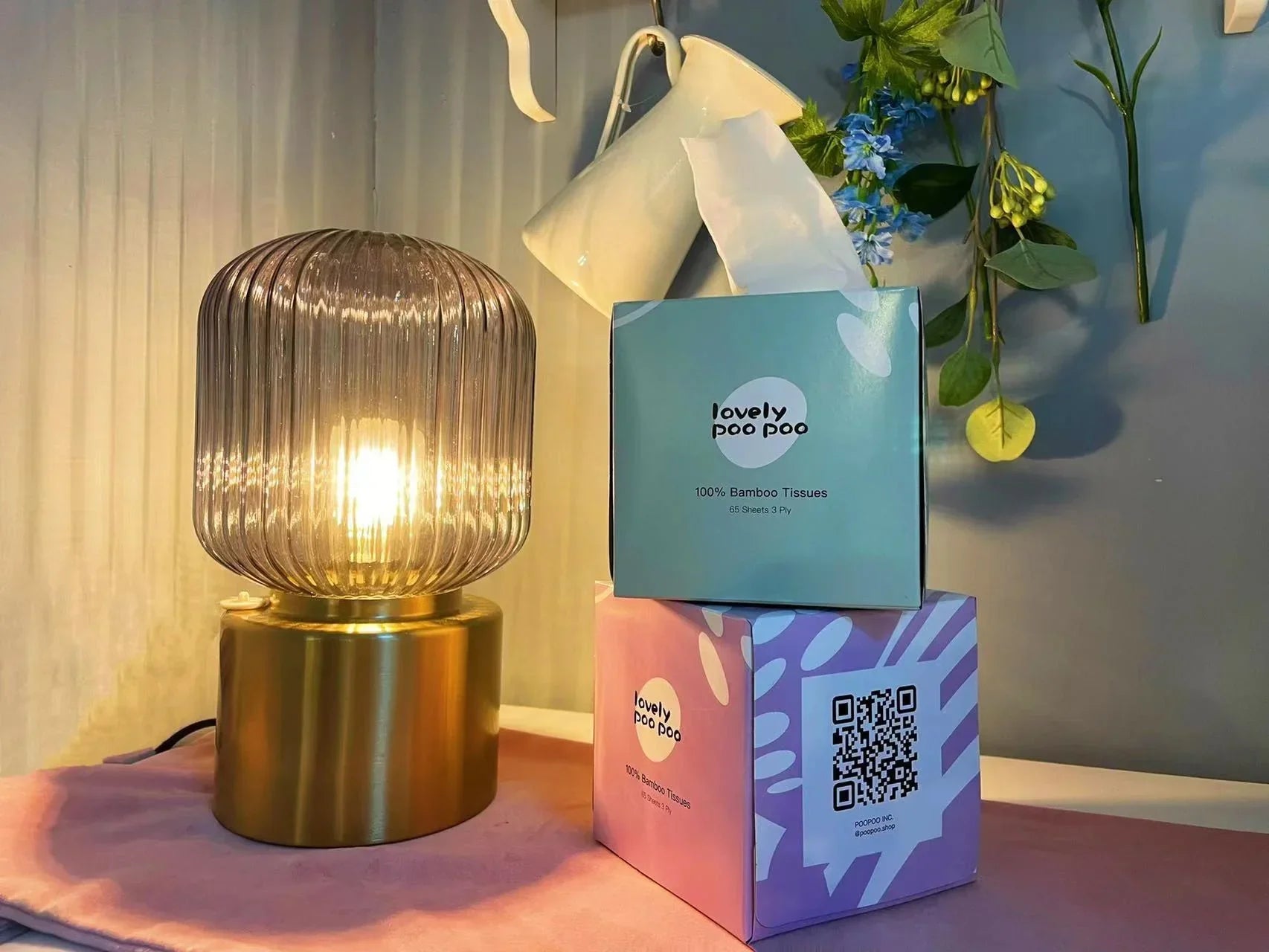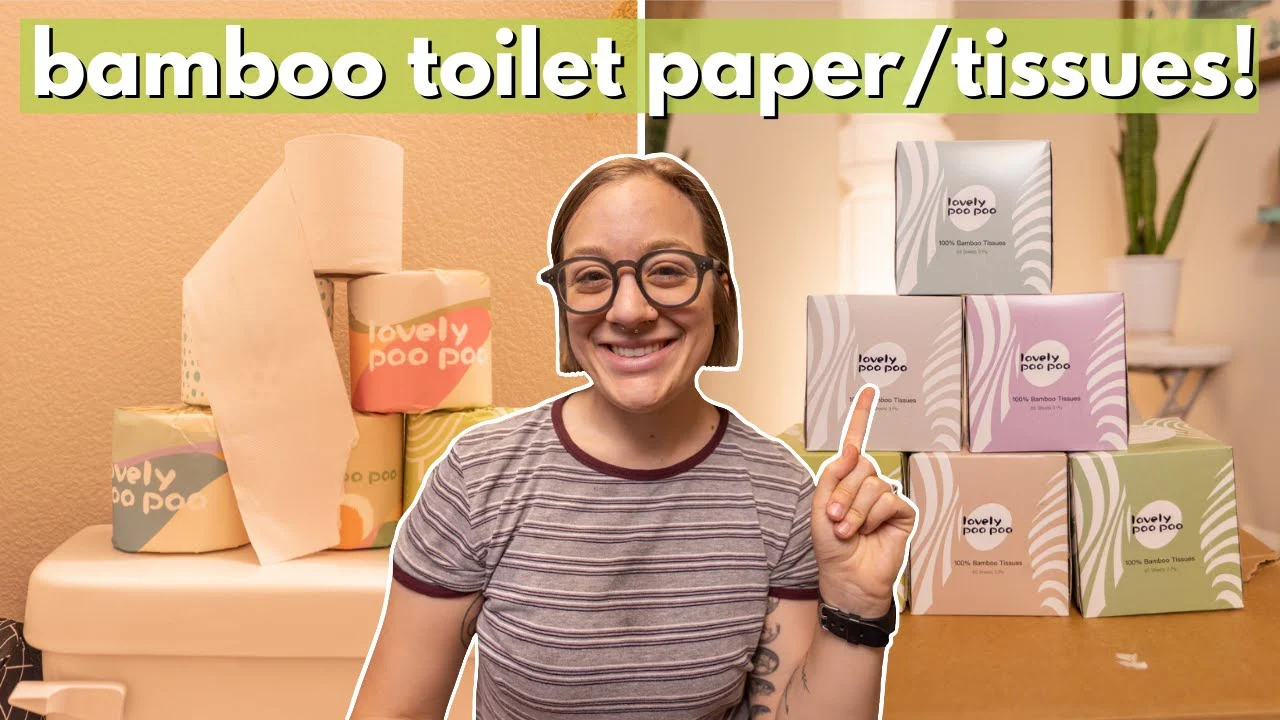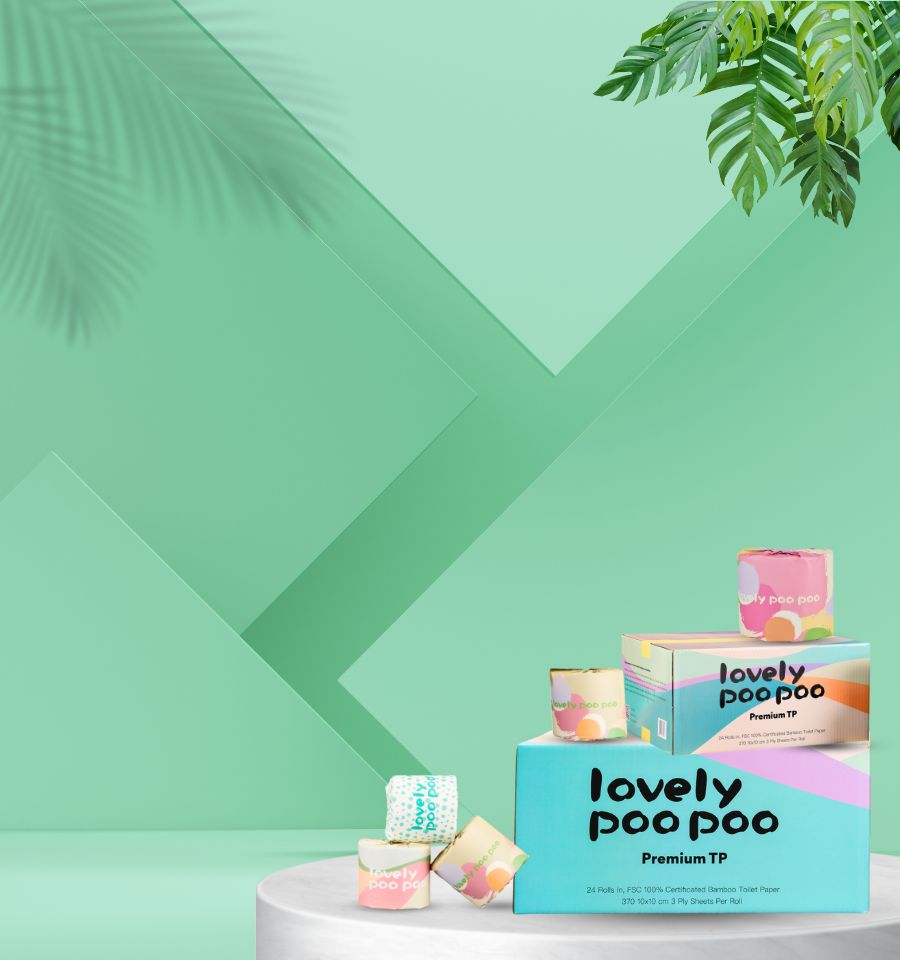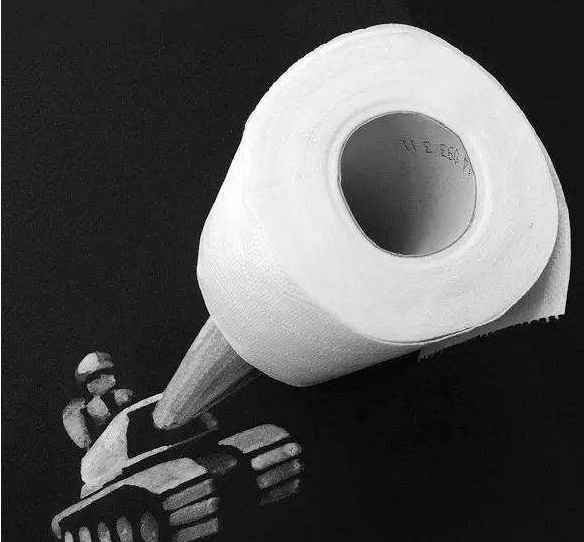* 100% Bamboo Toilet Paper
* Power Wipe Clean
* 100% Tree-free Paper Packaging,
* Fully recyclable
* Free of ink, dye and odor
* Sustainable procurement
* Jam safety
* Septic friendly

Recently, many customers have raised questions about Lovely Poo Poo. I also know that this is because everyone has a wait-and-see attitude towards Lovely Poo Poo products. Therefore, I have selected some relatively more frequently asked questions for the following answers
- Is bamboo toilet paper really soft?
In fact, we say that bamboo toilet paper is soft, but most people think that we are doing it for product marketing, and that the softness we express is subjective. Why not come to this conclusion by browsing the product page and scrolling down to the bottom to see the reviews. 90% of the reviewers of Lovely Poo Poo think that the bamboo paper is soft and silky, which is softer and has a better experience than other wood pulp/bamboo pulps on the market. The team at Lovely Poo Poo think that Poo Poo Bamboo Paper is not only softer, but also stronger, providing better pull as you wipe.
Not only toilet paper, we also have kitchen paper, which is more absorbent and not easy to tear, but it decomposes very well. And facial tissue is also very soft, you can wipe your hands, cheeks, lips, giving you a cloud-like touch.
- Why use bamboo?
Bamboo is one of the fastest growing, strongest and most useful plants on earth. Bamboo grows more than a meter per day, is a renewable resource and matures in 4-6 years or less; in stark contrast, trees take decades (20-50 years) to recover from harvesting recovered. Truly a miracle of nature, bamboo grows easily even in unique environments such as environmentally stressed areas and hillsides and steep slopes where other crops cannot grow. The plant thrives in poor soil and when it is cut, the stem is left in the soil to germinate new shoots and start the growth process again. Bamboo releases 30% more oxygen into the atmosphere and absorbs more carbon dioxide than other plants, so it protects the environment as it grows and even helps reduce soil erosion. Bamboo paper is recyclable. Like paper made from wood pulp, bamboo paper can be recycled to reduce our environmental impact, further reducing our dependence on trees and the disastrous environmental impact of cutting and deforestation. Overall, bamboo offers us strength, sustainability, versatility and an environmentally responsible alternative. Some tree-free products use fillers like sugar cane and recycled materials or even virgin tree pulp fibers, Lovely Poo Poo paper is made from 100% bamboo.
- Why wrap each roll in wrapping paper?
Some people will definitely say that it is not environmentally friendly? Why such a waste?
Because... our wrapping paper is also made of bamboo, which not only protects each roll from being squeezed, but also effectively resists moisture. You can protect each toilet paper roll from dust and other germs floating in the bathroom, and you can display it outside your bathroom cabinet for a decorative-chic look. You can repurpose wrapping paper and do something creative with it, or you can recycle it — either way, it's a better, cuter alternative to plastic wrap. Our wrappers are adorable too, with 42 different wraps.
- Why is Bamboo Toilet Paper Sustainable?
Some striking facts:
* Americans consume 20% of the world's toilet paper.
* Most of the toilet paper used in the U.S. comes from Canada, where the number of trees has plummeted in recent years due to fires, depleting their forests and causing devastating environmental damage.
100% sustainable use of bamboo toilet paper, you will save 384 trees in your lifetime.
* Bamboo forests mature in 4 to 6 years, while trees take 20 to 50 years to recover from felling.
You have made a great decision not only to switch to 100% bamboo paper, but to Lovelypoopoo bamboo paper. Truly a miracle of nature, bamboo grows easily even in unique environments such as environmentally stressed areas and hillsides and steep slopes where other crops cannot grow. The plant thrives in poor soil and when it is cut, the stem is left in the soil to germinate new shoots and start the growth process again. Bamboo releases 30% more oxygen into the atmosphere and absorbs more carbon dioxide than other plants, so it protects the environment while it grows and even helps reduce soil erosion.
- Can you recycle bamboo?
Bamboo paper is recyclable. Like paper made from wood pulp, bamboo paper can be recycled to reduce our environmental impact, further reducing our dependence on trees and the disastrous environmental impact of cutting and deforestation.
